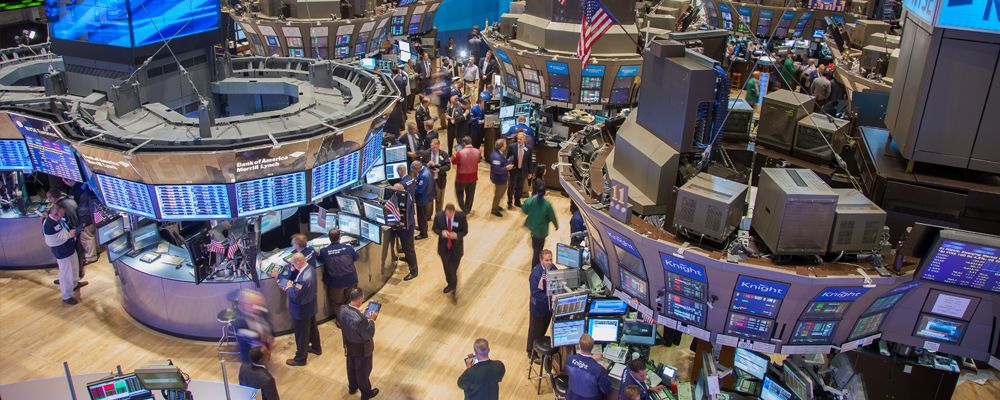We have suffered a correction.
- Monday, March 1, 2021
 Global stock markets have fallen around 4% over the past 10 days with Friday seeing heavy one day falls. These asset value reductions were the result of recent rises in US treasury yields due to the expectation of rising inflation and the impact this has had on high valued equity.
Global stock markets have fallen around 4% over the past 10 days with Friday seeing heavy one day falls. These asset value reductions were the result of recent rises in US treasury yields due to the expectation of rising inflation and the impact this has had on high valued equity.
US 10-year treasury yields have been steadily rising since August, but have in the past 10 days risen by 22% from 1.15% to a one year high of 1.55% before falling off to 1.41% on Friday. This sudden rise resulted in the S&P 500 falling -4%, the Nikkei 225 falling -5% and the FTSE 100 -4% over the same 10-day period.
Bond yields have been kept at historically low levels over recent years due to the unprecedented influence of quantitative easing programmes that have bought up bonds and pushed down yields. The IMF have reported that the developed world borrowed in total US$ 18tn in 2020. This new money is in the global economy and it will emerge as inflation at some time.
The recent rises in US 10-year treasury yields are the result of a growing expectation of inflation building in the US economy, as it emerges from the pandemic restrictions and business starts to recover. The rate of vaccination roll out and the efficacy of the vaccines has improved the likelihood of ending lockdown restrictions sooner.
The Bank of England is now far less likely to cut interest rates and the notion of negative interest rates are unlikely to materialise.
When we build our Edition 34 Portfolios at the end of 2020, we were still unsure as to how the next six months would pan out. We hoped for a vaccine aided path back to something close to normal life but could not be certain as a recession was inevitable as was high unemployment. The success of the vaccine role out was then unknown. For these reasons we kept our holdings, although quite modest, in long dated gilts and bonds as an insurance against any potential fall in markets. These positions are now working against us and themselves falling in value as they are particularly sensitive to inflation.
With a recent change in sentiment to the outlook for inflation we want to swiftly change our positions in our portfolios from holding any long-dated gilts and bonds and move these holdings to short dated high yield bonds that are better placed to hold their own in this environment.
We have enjoyed since last April strong recovery in equity markets. The upward travel of stock markets over the past 10 months would have to re-adjust as some point and last week that happened. There may be some continued vulnerability ahead but the majority view is of attractive stock market returns in 2021 as the developed world returns to work and leisure.
The US inflation rate was 1.4% at the end of January and is expected to go ahead of the Federal Reserves notional target of 2% in Q2. If it heads north of 3% then we may want to take extra inflation protection in our portfolio with the further inclusion of inflation linked bonds, gold and commodities. We may action an earlier rebalance for portfolios than June. UK inflation was 0.7% at the end of January.
Central banks will want to control inflation as the prospect of interest rate rises will result in more expensive cost of US$18tn collective borrowing. This is something that governments nor markets will want. The IMF have published data that indicated that the average global public debt is now 99.5% of GDP.
President Joe Biden’s US$1.9tn stimulus package has been approved by the House of Representatives and will now go to the Senate for the final round before passed into law.
The package includes US$70bn to boost vaccines and testing, a £1,400 emergency aid payment to all households, small business relief and support for State Governments. The policy to double the US minimum wage from US$7.24 to US$15 an hour is likely to be blocked by an evenly divided Senate. This stimulus package will add expectations over inflation and its passage through Congress has prompted US yields to rise.
The UK is a leader in the vaccination charge and has a road map to re-opening the economy. This will provide a boost to UK stock markets that have not performed well recently. Analysts are expecting the UK to out perform several other markets in the year ahead.
With UK gilt yields at 0.7% and at the lowest levels for 300 years, the Chancellor Rishi Sunak is expected to use his budget on Wednesday to help the recovery rather than reduce the deficit. He will however make sure that the country knows that the UK will need £60bn of tax rises to balance the books.
We have now had a correction in equity markets that several observers have been expecting. We shall see next week if this correction is followed by a pick up as is often the case.

Chris Davies
Chartered Financial AdviserChris is a Chartered Independent Financial Adviser and leads the investment team.
About Estate Capital
Financial Services
Our Contacts
7 Uplands Crescent,
Swansea, South Wales,
SA2 0PA.
Tel: 01792 477763
